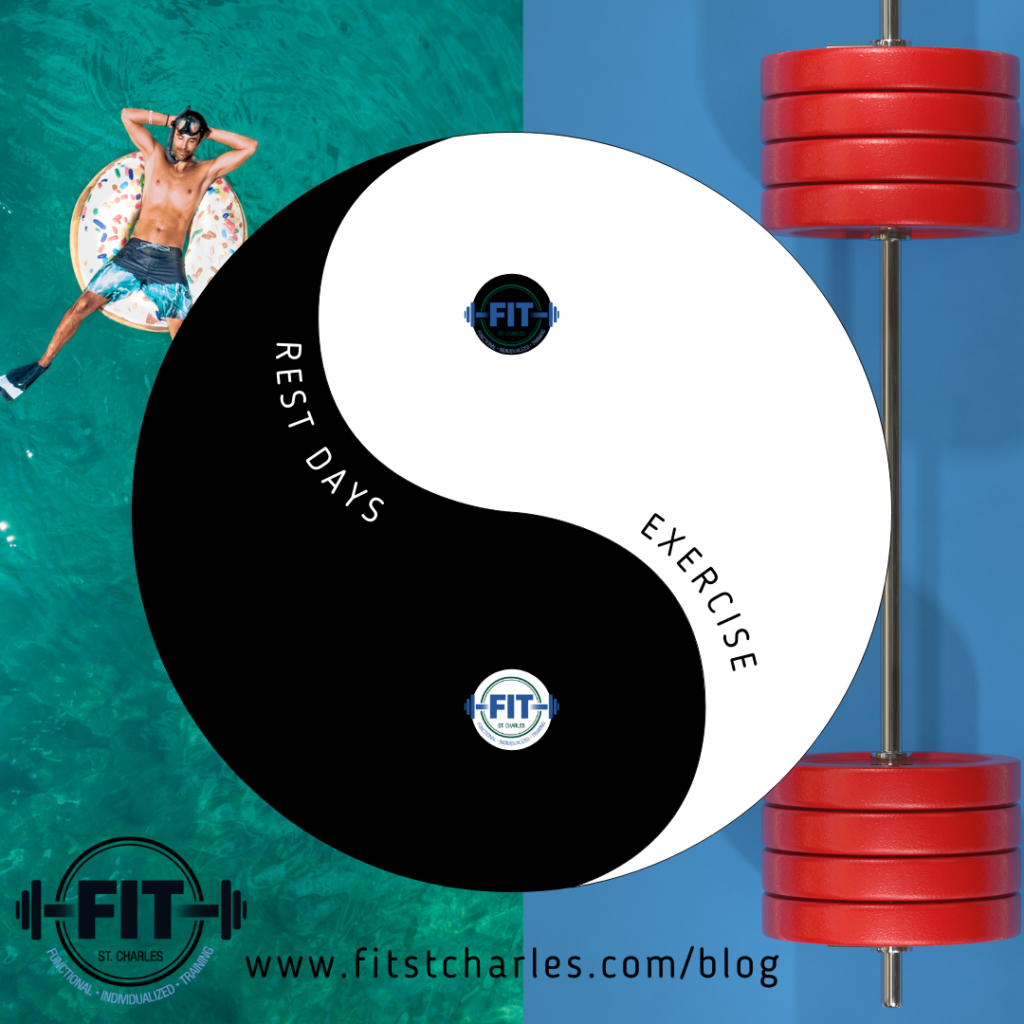
Do you feel the urge to skip your next rest day? Sometimes it’s hard to take intentional rest days, we get it. Once you get in the groove, it’s easy to fool yourself into thinking that you need to go, go, go all of the time. However, not taking time to let your body and your mind rest is not only a bad way to go about building muscle, it can be detrimental to your fitness routine. Like all things in life, you need balance. Think of it like this: rest is the yin to training’s yang.
Rest days are important for a multitude of reasons, and no training plan is complete without a strategy for rest. In fact, rest days PROMOTE muscle growth. Allowing your muscles to recover between training sessions gives them the time they need to grow and heal. Muscle growth happens when you train with enough intensity that you create microscopic tears in your muscle fibers (which is why you are sore after!). Your body’s response to this is to strengthen that tissue to be able to overcome the force that caused damage. So as you rest, your body repairs those microscopic tears which results in stronger muscles and increased muscle mass. If you do not allow your body to take the time it needs to repair your muscles, the best case scenario is that you see diminishing returns. The worst case is injury.
Overworking a muscle group with excessive exercise does not allow it time to heal, which can result in overuse injuries, and ignoring the need for rest can result in overtraining syndrome. Apart from overuse injuries, overtraining syndrome can cause fatigue, depression, insomnia, irritability, hypertension, restlessness, and of course heavy, sore, stiff muscles. In some cases it can also cause increased chance of illness, higher blood pressure, and irregular menstrual cycles. The only way to overcome overtraining syndrome is rest, which means that you might not be able to workout for the duration of the healing period, which can take weeks or even months.
The good news is that your body gives you warning before overtraining occurs. Before you experience overtraining syndrome, you will experience muscle soreness that is far beyond what you typically experience. This is due to overreaching. Overreaching happens when you have several days in a row of hard training. This causes you to feel more tired and sore than normal. Fortunately, if you listen to your body at this stage, it can easily be reversed with a few days of rest! So if you are feeling more sore than normal, or more run down than normal after working out really hard for a few days, it’s best to take a rest day or two to let your muscles heal. Listen to your body!
Avoiding rest can cause injury in other ways too. We know that injuries often happen in the gym from bad form. If your muscles are already fatigued (or your mind is too fatigued, which can also be a product of overreaching), it is much harder to maintain proper form. If you are too tired or too sore to maintain proper form, especially while weight lifting, it’s probably time for a rest day- or at least take a break from working the muscle group that is giving you trouble. Experts recommend that if you workout back-to-back days that you alternate the muscle groups being worked, ideally for 48-72 hours, especially if you have lifted heavy, worked out longer than you usually do, or are experiencing more soreness than normal.
With rest being such an important part of your fitness journey, let’s take a moment to talk about what rest should look like, because it’s not ONLY taking a day off from the gym. Real rest also consists of getting enough sleep, limiting stress, physically relaxing, and taking care of your mental health. 7-9 hours of sleep is what is recommended, especially if you are physically active. It is also recommended that you stretch, use a foam roller, or find other means to physically relax your muscles.
As far as relieving stress and taking care of your mental health goes, we know that exercise can reduce stress, but too much of a good thing is a bad thing. In this case, we are talking about how you manage your work/life balance, how much time you take for yourself, and if you do activities that you enjoy that relieve stress in a way that works for you. Take some time for yourself to practice self-care. Practice a hobby that you enjoy. Spend some time with loved ones. Do something that you like doing that doesn’t require a HUGE amount of physical exertion (during a rest period). Doing things that you love with people you love (or by yourself if you need time alone!) is a good way to enjoy rest days!
